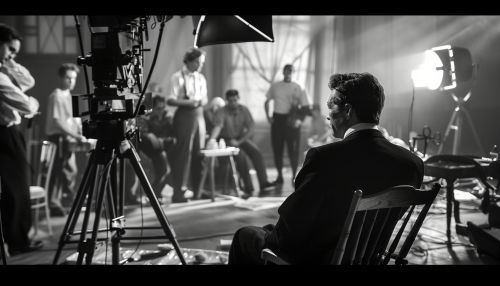John Ford
Early Life
John Ford was born on February 1, 1894, in Cape Elizabeth, Maine, to John Augustine Feeney and Barbara "Abbey" Curran. His father was an Irish immigrant, and his mother was the daughter of Irish immigrants. Ford's family moved to California when he was young, and he attended both high school and college in the state.
Career
Ford began his career in the film industry as a prop man for his older brother, Francis Ford, who was a successful actor and director at the time. He quickly moved up the ranks, becoming an assistant director and then a director in his own right. Ford's first film, The Tornado, was released in 1917. Over the next seven years, he directed more than 50 films, most of which were Westerns.
Ford's breakthrough came in 1924 with the release of The Iron Horse, a Western epic that was both a critical and commercial success. The film established Ford as one of the leading directors in Hollywood and set the stage for his future success.
In the 1930s, Ford directed a string of successful films, including The Informer (1935), Stagecoach (1939), and The Grapes of Wrath (1940). These films showcased Ford's ability to tell complex, human stories within the framework of the Western genre.
During World War II, Ford served in the U.S. Navy and directed several documentaries for the military. His most famous wartime film, The Battle of Midway, won an Academy Award for Best Documentary.
After the war, Ford returned to Hollywood and continued to direct successful films, including My Darling Clementine (1946), Fort Apache (1948), and The Quiet Man (1952). He also directed The Searchers (1956), which is often considered one of the greatest Westerns of all time.
In the 1960s, Ford's health began to decline, and he directed his last film, 7 Women, in 1966. He passed away on August 31, 1973, leaving behind a legacy of more than 140 films.


Legacy
Ford's impact on the film industry cannot be overstated. He is often credited with elevating the Western genre from B-movie status to a respected form of storytelling. His films are known for their complex characters, moral ambiguity, and stunning cinematography.
Ford won four Academy Awards for Best Director, a record that still stands today. He was also the first recipient of the American Film Institute's Life Achievement Award.
Despite his success, Ford was known for his humility. He often downplayed his role in the filmmaking process, saying, "I just make pictures."
